Paleontology
-
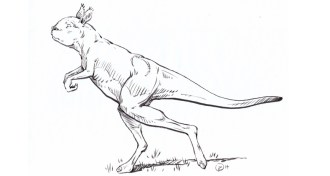 Paleontology
PaleontologyExtinct giant kangaroos tiptoed one leg at a time
Stiff spines, flared hips and other fossil clues suggest extinct, refrigerator-sized kangaroos stepped one hind leg at a time instead of hopping.
By Susan Milius -
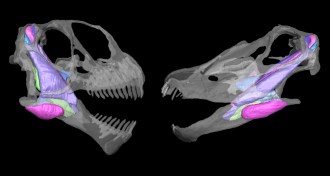 Paleontology
PaleontologyPlant-eating dinosaurs coexisted by munching different vegetation
Differences in skulls allowed sauropods to coexist in an arid landscape by enabling the dinosaurs to tackle different plants.
-
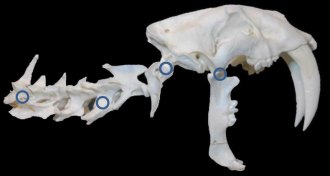 Animals
AnimalsHow a saber-toothed cat is like a can opener
A researcher argues that the saber-toothed cat’s teeth acted like an old-fashioned can opener.
-
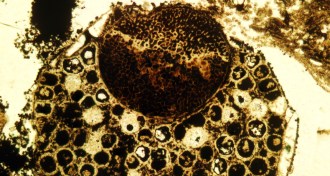 Paleontology
PaleontologyStrange fossils from China hint at early multicellular life
New fossils of strange, oblong organisms that lived 600 million years ago are giving scientists hints to how living things may have moved from being single- to multi-celled.
-
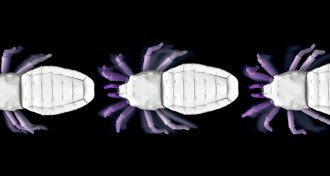 Paleontology
Paleontology3-D scans reveal secrets of extinct creatures
Paleontologists can dig into fossils without destroying them and see what’s inside using 3-D scanning. What they’re learning helps bring the past to life.
-
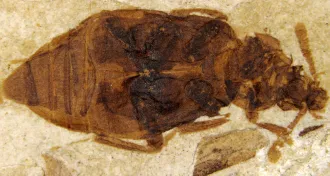 Paleontology
PaleontologyFossil beetles show earliest signs of active parenting
Ancient beetles that thrived off of dead and decaying flesh may have been among the first creatures to actively care for their young.
-
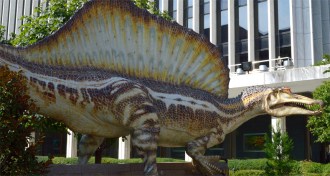 Paleontology
PaleontologyLost-and-found dinosaur thrived in water
Fossils pieced together through ridiculous luck reveal Spinosaurus to be the only known dinosaur adapted for regular ventures into water.
By Susan Milius -
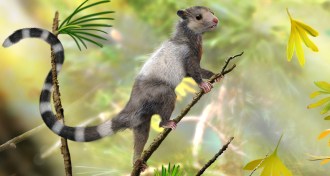 Paleontology
PaleontologyFossils push back origins of modern mammals
Fossils of three newly identified early mammals from China suggest that the common ancestor of today’s mammals lived over 200 million years ago.
By Meghan Rosen -
 Paleontology
Paleontology‘Dinosaur 13’ details custody battle for largest T. rex
Documentary details nasty custody battle over the dinosaur nicknamed Sue, the largest T. rex skeleton ever found.
By Meghan Rosen -
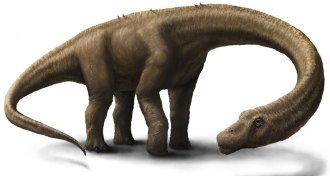 Paleontology
PaleontologyWorld’s largest dinosaur discovered
A plant-eating dinosaur named Dreadnoughtus schrani has claimed the record for most massive land animal discovered to date.
By Meghan Rosen -
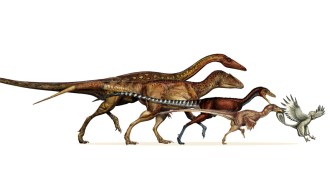 Paleontology
PaleontologyDinosaurs shrank continually into birds
Steady miniaturization and rapidly changing skeletons transformed massive animals into today’s fliers.
By Meghan Rosen -
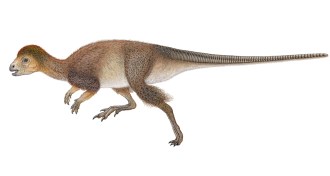 Paleontology
PaleontologyFeathered dinosaurs may have been the rule, not the exception
Newly discovered fossil suggests feathers may have been common among all dinosaur species.
By Meghan Rosen